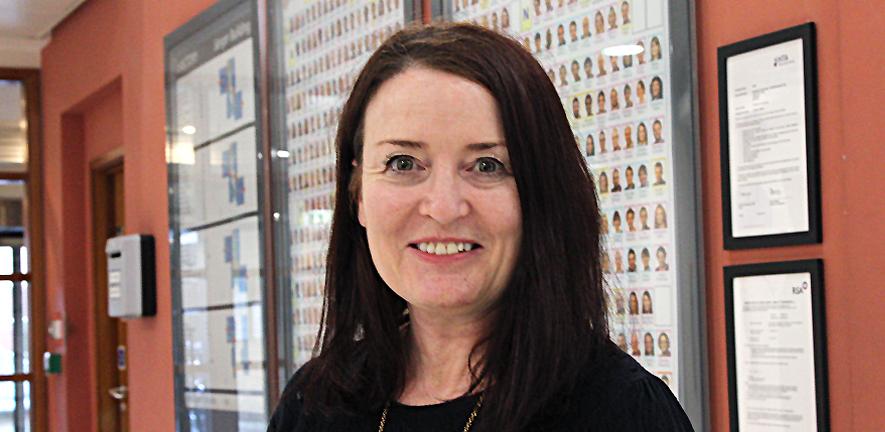
Val Wood is to receive the International Society for Biocuration's 2019 Exceptional Contributions to Biocuration Award.
Biocurators organise biological data within databases by grouping together and labelling proteins that have similar attributes or functions, for example being localised at the cell membrane or playing a role in cell division. They also filter and remove incorrect or out-of-date labels to ensure that databases are current and are correctly represented.
Val Wood's work involves building a simple but powerful series of rules, based on existing biological knowledge, that can be used to identify incorrect labelling of proteins. When tidying a house, possessions are intuitively organised based on their useful characteristics. Needles and thread, for example, are classified as 'sewing kit items', whilst knives, forks and spoons are classified as 'cutlery drawer items'. Rules, such as Val's, could then alert curators if a knife were found in the sewing kit by mistake. Some items, such as scissors in this example, could belong in both a sewing kit and a cutlery drawer. Here, the rules are extended to say that 'nothing belongs in both the sewing kit and the cutlery drawer, unless it's a pair of scissors'.
Val initially identified rule-violating proteins in the fission yeast, Schizosaccharomyces pombe, through checking their labels manually. Since 2010, however, a computational tool developed by Seth Carbon in Chris Mungall's group at the Lawrence Berkeley National Laboratory has allowed the rapid identification of large numbers of potential labelling errors. A pilot project covering just a small section of the biological 'dictionary' provided by Gene Ontology (GO) enabled the correction of 147 labelling errors from four model organisms (two yeast, a worm and mouse). Curators at other model organism databases joined the project to verify these potential violators, helping Val to refine the rules. As labels in these model species are used to infer over 600 million annotations across thousands of relatively unstudied species, the total impact of this pilot study was the correction of almost a million out-of-date inferred annotations! With the GO dictionary containing 44,000 label types, comprehensive rule building is a significant task. However, it is hoped that eventually this system will alert researchers to changes in biological knowledge, and allow the rapid identification of questionable annotations across many biological databases.
The International Society for Biocuration's award also recognises the success of the Fission Yeast Community Curation Project. A major problem in biocuration is the increasing volume of data requiring annotation, which is a highly labour intensive process. Val speculated that researchers could complete their own labelling for their published work if they were presented with suitable tools. As such, in 2013 PomBase launched Canto, an online tool implemented by PomBase software engineer Kim Rutherford. A substantial proportion of labelling is now conducted by publication authors, with the PomBase curation team working with them on a publication-by-publication basis to ensure that data is represented accurately and comprehensively. This is a win-win solution where authors make their own research visible, and therefore reusable, whilst saving time for the PomBase team; ultimately allowing more publications to be processed.
Speaking about her award, Val said: "The award is an honour, and a welcome recognition for the work of the small PomBase team. It is good to know that our work is useful not only to our core user base of fission yeast researchers, but that it also has a ripple effect!"
The International Society for Biocuration (ISB) is a non-profit organisation for biocurators, developers, and researchers with an interest in biocuration. The Society promotes the field of biocuration and provides a forum for information exchange through meetings and workshops. The ISB Exceptional Contributions to Biocuration Award recognises a person who is a leader or a pioneer in the field of biocuration, and whose work has been fundamental to the advancement of biocuration.
